Create a new java class called ListNode Implement ListNode a
Create a new java class called ListNode. Implement ListNode as a generic version of IntNode. public class ListNode { }
Create a generic class called Queue, which is a linked list implementation of a queue data type. Queue must have the following methods:
• public void enqueue(T value){} This method should add a new node to the back of the queue.
• public T dequeue(){} This method should remove a node from the front of the queue and return its value
• public T peek(){} This method should return the value of the front node without removing it from the queue
Create a new generic class called Stack, which is a linked list implementation of a stack data type. Stack must have the following methods:
• public void push(T value){} This method should add a new node to the top of the stack.
• public T pop(){} This method should remove a node from the top of the stack and return its integer value
• public T peek(){} This method should return the integer value of the top node without removing it from the stack
Solution
import java.util.Iterator;
public class LinkedList<E> extends AbstractList<E> {
private ListNode front; // refers to first node in list (null if empty)
public LinkedList() {
front = null; // null front means empty
}
public void add(int index, E value) {
if (index == 0) {
// insert at the front
front = new ListNode(value, front);
} else {
ListNode current = goTo(index - 1);
ListNode newNode = new ListNode(value, current.next);
current.next = newNode;
}
}
public E get(int index) {
ListNode current = goTo(index);
return current.data;
}
public int indexOf(E value) {
int index = 0;
ListNode current = front;
while (current != null) {
if (current.data == value) {
return index;
}
index++;
current = current.next;
}
return -1;
}
public Iterator<E> iterator() {
return new LinkedListIterator();
}
public void remove(int index) {
if (index == 0) {
// removing from the front
front = front.next;
} else {
ListNode current = goTo(index - 1);
current.next = current.next.next; // deletes the node
}
}
public void set(int index, E value) {
ListNode current = goTo(index);
current.data = value;
}
public int size() {
int count = 0;
ListNode current = front;
while (current != null) {
current = current.next;
count++;
}
return count;
}
public String toString() {
if (front == null) {
return \"[]\";
} else {
String result = \"[\" + front.data;
ListNode current = front.next;
while (current != null) {
result += \", \" + current.data;
current = current.next;
}
result += \"]\";
return result;
}
}
private ListNode goTo(int index) {
ListNode current = front;
for (int i = 0; i < index; i++) {
current = current.next;
}
return current;
}
public class ListNode {
public E data;
public ListNode next;
public ListNode(E data) {
this.data = data;
this.next = null;
}
public ListNode(E data, ListNode next) {
this.data = data;
this.next = next;
}
}
private class LinkedListIterator implements Iterator<E> {
private ListNode current; // current position in list
public LinkedListIterator() {
current = front;
}
public boolean hasNext() {
return current != null;
}
public E next() {
E result = current.data;
current = current.next;
return result;
}
public void remove() {
throw new UnsupportedOperationException();
}
}
}
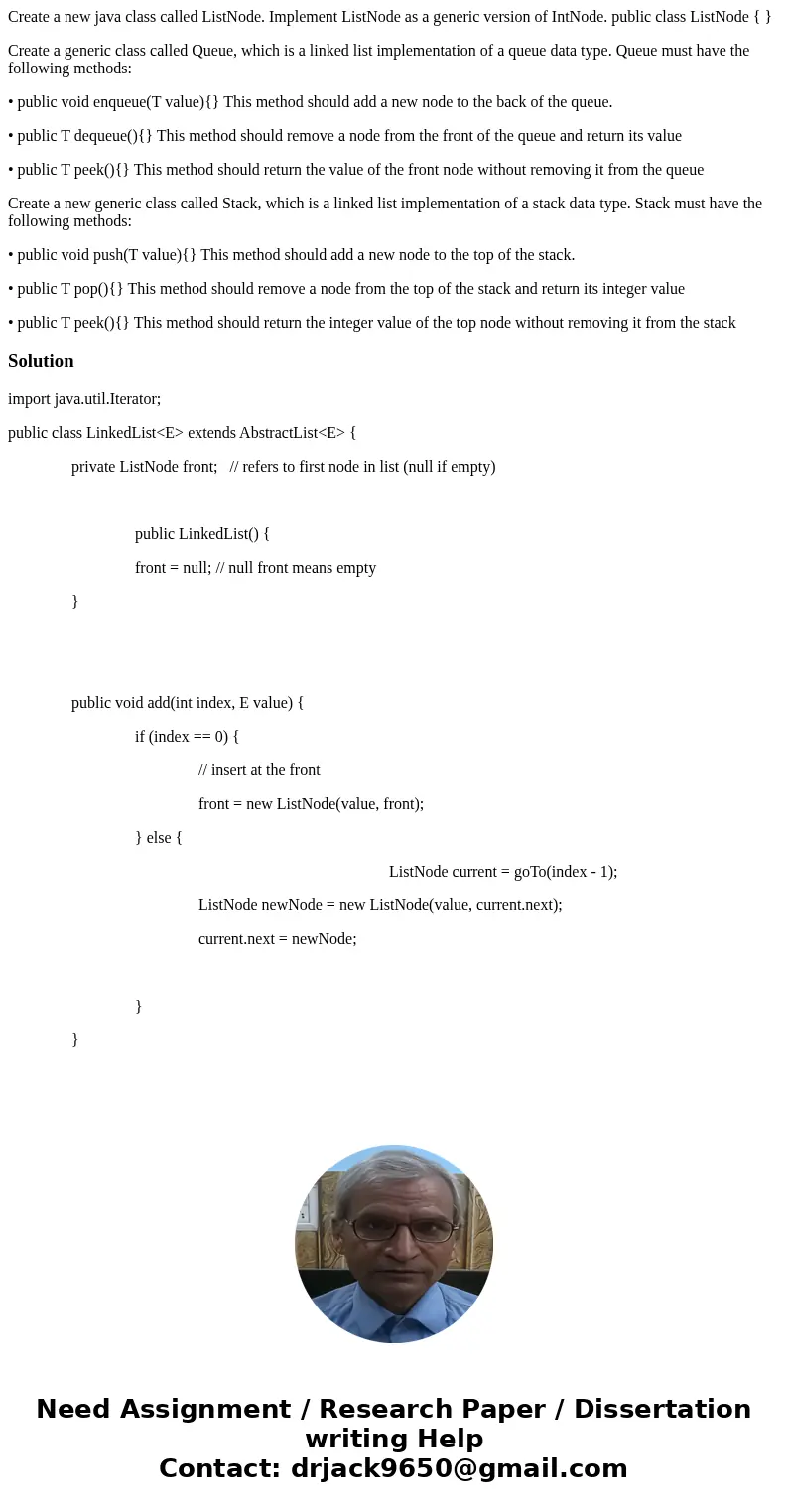
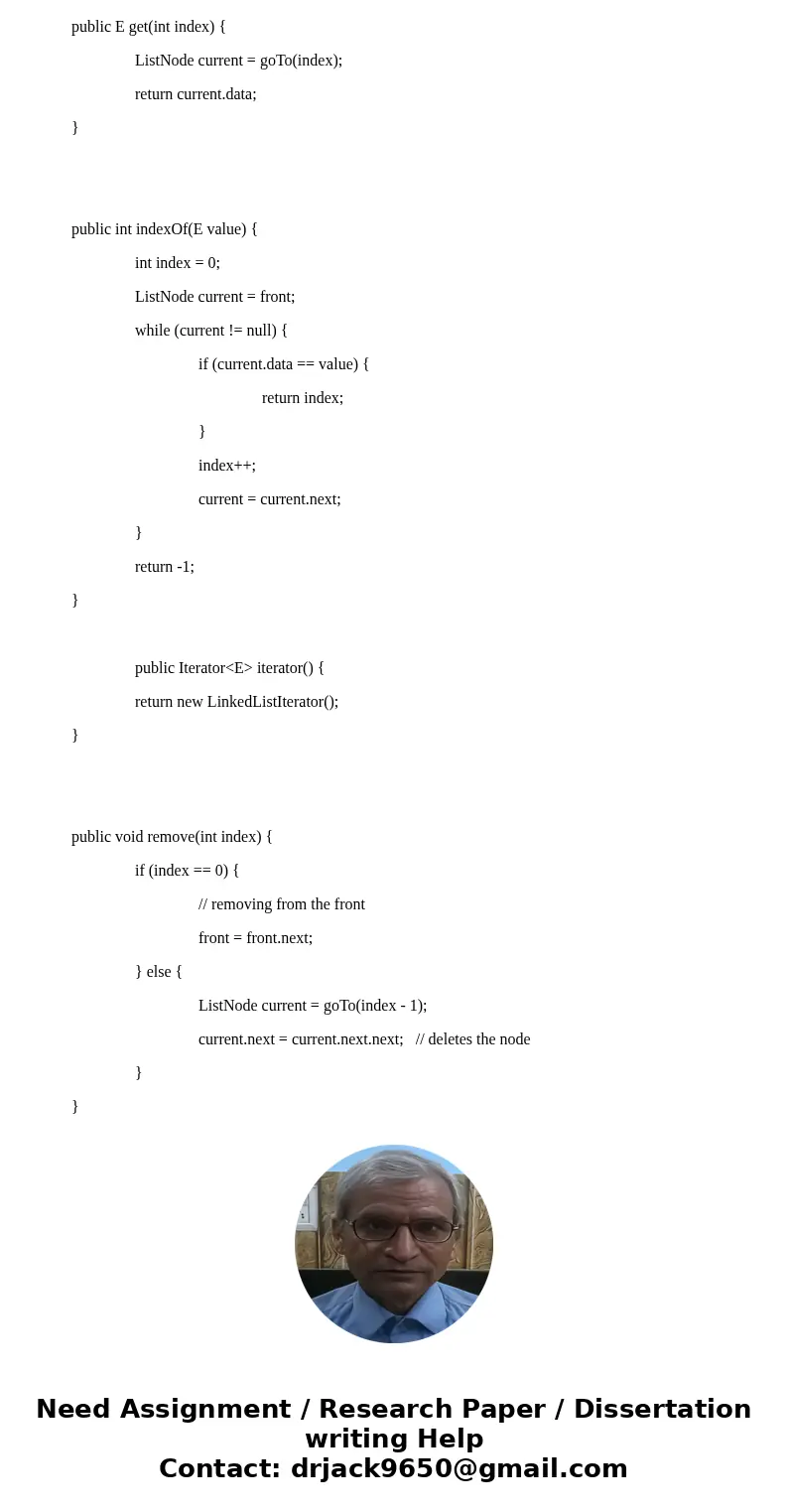
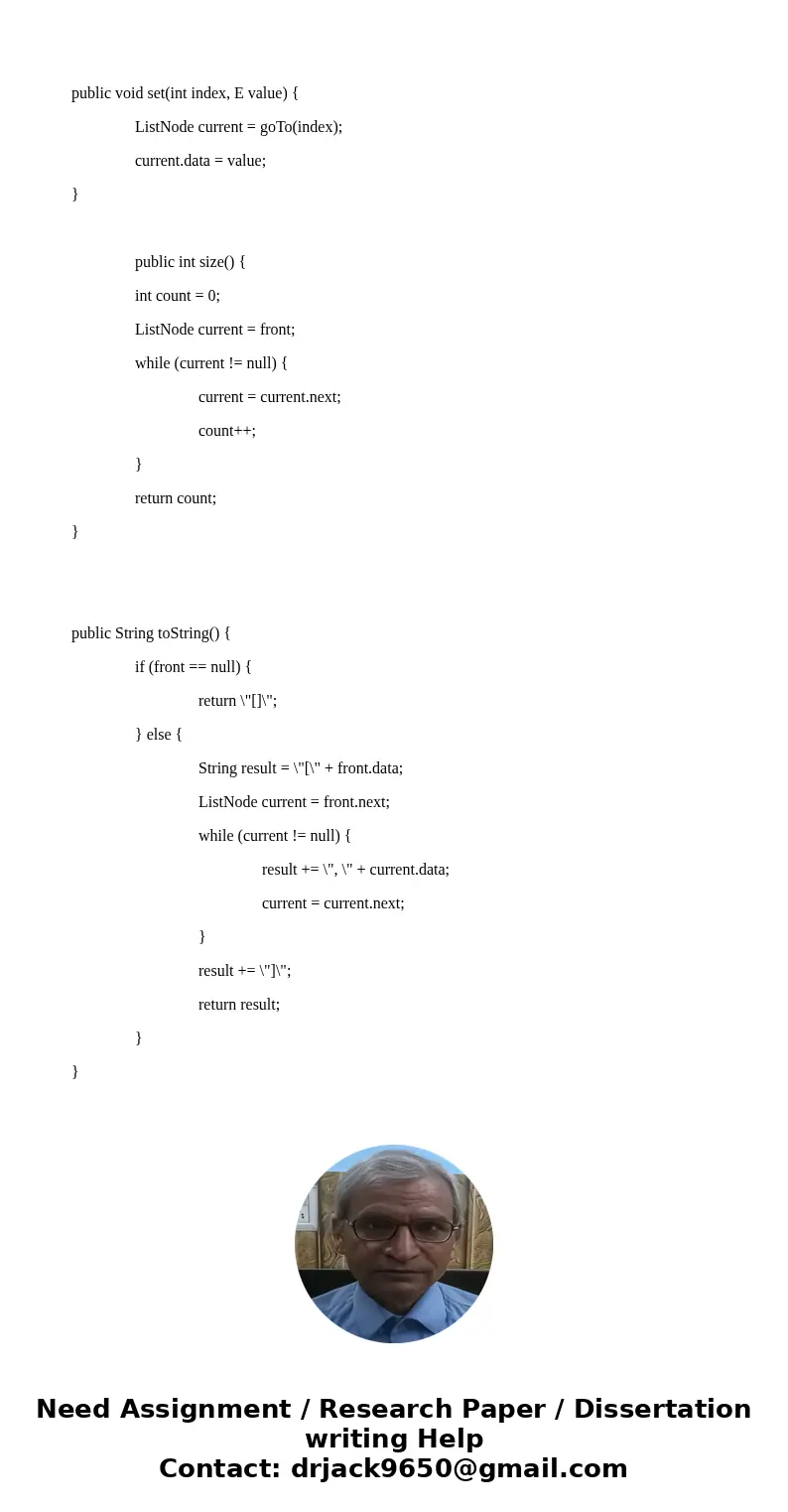
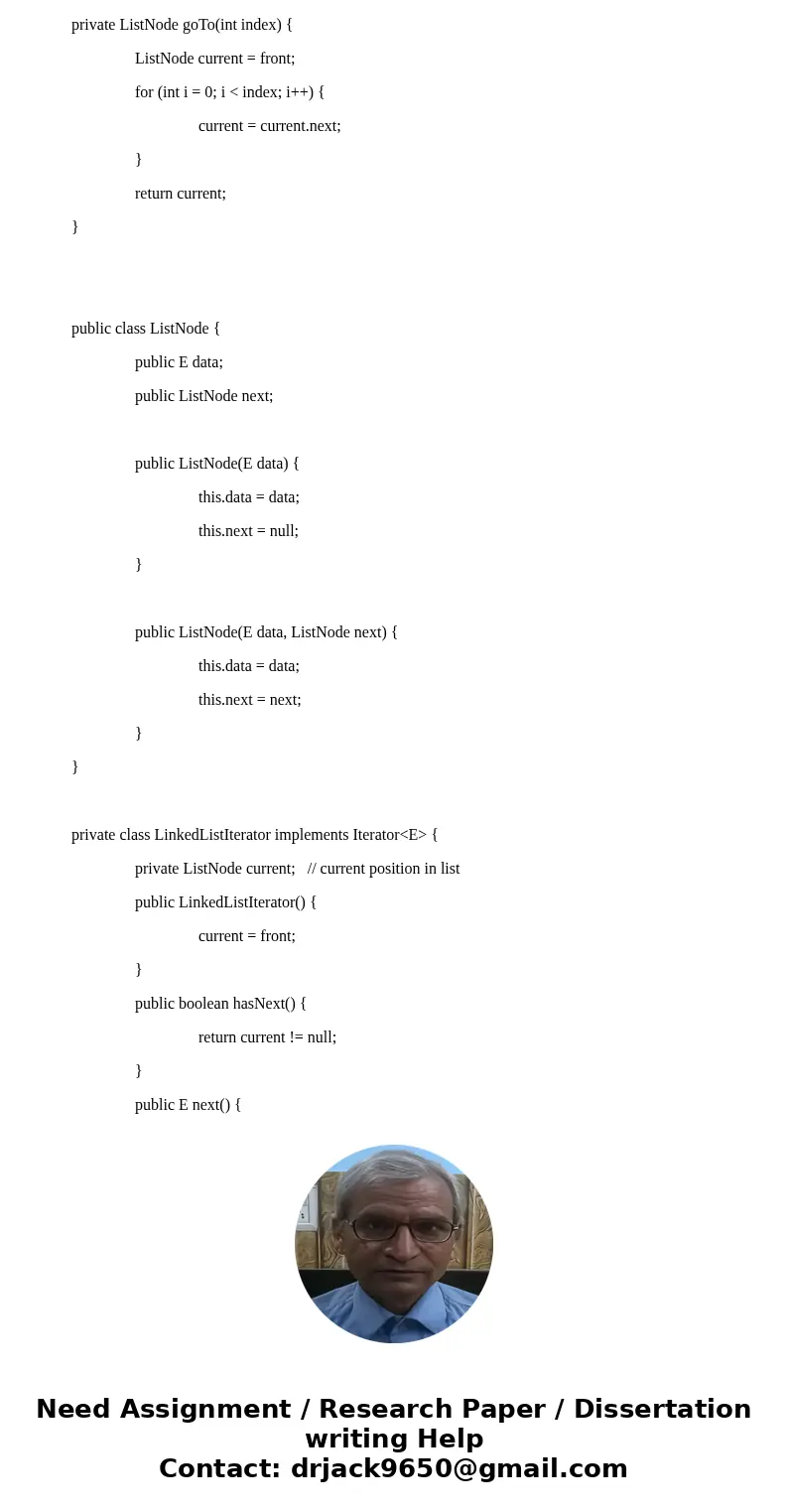
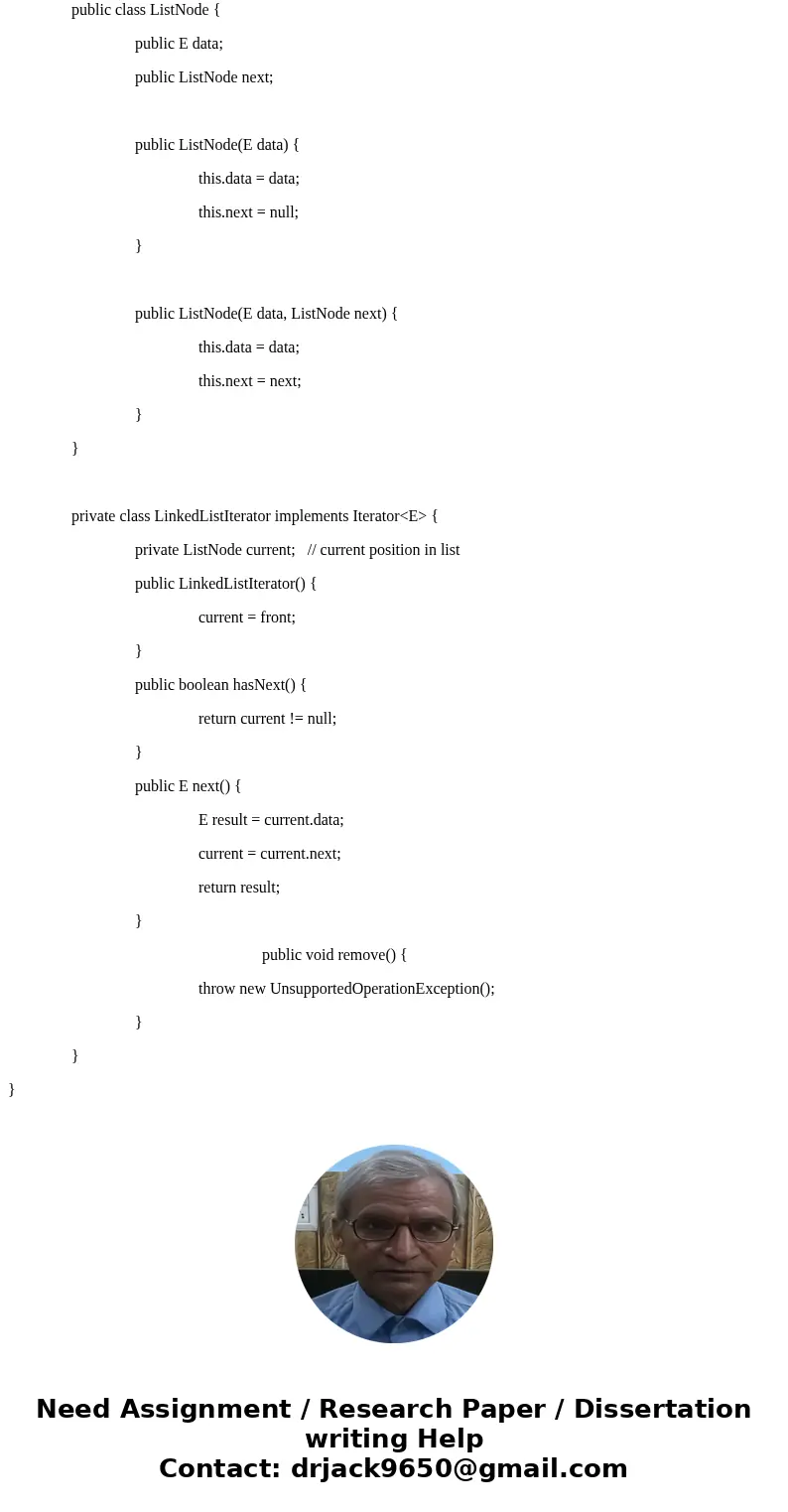
 Homework Sourse
Homework Sourse